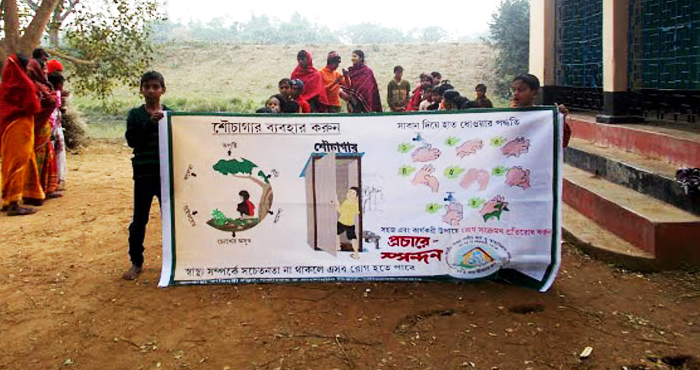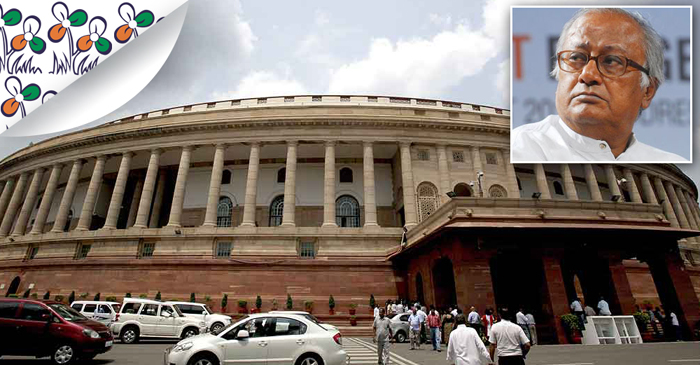Full Transcript
Mr. Deputy Speaker, Sir, I rise to speak on the Demands for Grants of the Ministry of Drinking Water and Sanitation. I have given my Cut Motion also to the Demands. But what will I speak on the Demands? I have full sympathy for the Minister. Please look at the way his Ministry has suffered Budget cuts.
The actual allocation for this Ministry in 2013- 14 was Rs. 11,941 crore, in 2014-15 it was Rs. 12,107 crore and this year it is Rs. 6,243 crore. The Government which speaks of supplying drinking water and a clean India has halved the Budget of this most crucial Ministry of Drinking Water and Sanitation. I strongly criticize this.
You may have seen the Report of the Standing Committee. The Standing Committee has decried this cut in the Budget of the Ministry and has said that the Government should still consider increasing the Budget of this very vital Ministry.
Sir, it is most unfortunate that 67 years after Independence, still only 40 per cent of the country has piped water supply as per 2011 Census and water supply has many problems. One is the supply of water and the second is the quality of water supplied. There are various problems associated with different States.
There are States like Rajasthan which is largely arid where people have to carry water from miles away to a State like Maharashtra where people collect water from percolation tanks to a State like West Bengal which has got surplus water. Maybe nature balances this. We have surplus surface water in West Bengal. But in our State, nine districts are affected by arsenic and fluoride content in water, mainly arsenic.
Arsenic belt has extended from West Bengal to Bangladesh and a part of Assam. You know, if you drink arsenic contaminated water, then you develop blisters on your body. This may turn into skin cancer. We have still not been able to provide arsenic free water to the State.
What is the way to improve the water quality? The main way is to supply surface water and reduce dependence on ground water. All projects for supplying surface water are very capital intensive. So far, the Centre has been funding the schemes for supplying surface water in arsenic affected districts. But, with this cut in the Budget – minimum Rs 300 crore is necessary for a big project – they will not be possible any more.
The Government is pushing our people towards suffering from arsenicosis. You may say, the Government has only one explanation; we have to increase the devolution to the States from 32 per cent to 42 per cent. That does not mean that you cut money on water supply and sanitation. It does not mean that you cut money on NREGA. It does not mean that you cut money on the schemes which affect the rural people.
So, I would urge, especially for my State, in all the areas affected by arsenic and fluoride poisoning, people must be supplied piped water through large surface water schemes. The other thing is, this Ministry is not still fully ready. It was set up only in 2011. Now, all over the world, research is going on whether we can take ground water and free it from arsenic.
There have been many projects in which arsenic-affected water is passed through a chemical which takes out the arsenic. There is serious research and investment in research to find out the ways since you cannot give everybody piped water. That sort of research is not happening in our country. I demand the setting up of a National Water Quality Laboratory in the arsenic affected State of West Bengal.
The earlier Government had promised such a scheme as to how to mitigate arsenic poisoning. That is not happening. There are also other processes of producing pure water. Our friend from Tamil Nadu has spoken of desalination. In Saudi Arabia, they are using nuclear energy for desalinating sea water. We must find out what is the way which is possible by which we can produce pure water from sea water.
Large portions of Tamil Nadu are arid especially if we go north of Madras, the North Arcot and all these districts. Where will they get ground water? There is already a plant in Tamil Nadu where they are producing drinking water by reverse osmoses process.
Sir, the other thing that is to be considered is how we can produce pure water in this country. Ultimately, we have to shift from ground water and go into surface water. We have to purify it by any means including sea water. The Ministry has not formulated any scheme for going into it in a big way.
Even today, Sir, villagers in our country drink water from the ponds. Practically they are drinking poison. We are forcing people to drink poisoned water even after 67 years of Independence. We should seriously think of it. I do not understand it. I have full sympathy with the helpless Minister. He finds his hands tied and his budget halved. What will he do with this budget?
The way they have cut the Budget, it is a matter of shame. They have cut money like anything in this country for drinking water. Only Rs. 2200 crore has been allocated for drinking water. There is a cut of around Rs 9000 crore. So, what will he do? Now, I come to sanitation problem. It was discussed. Mr. Naidu was replying in the morning that the open defecation is a big problem in this country.
Yeh zaruri baat: ek hi admi, ek hi neta desh me iske bare me awaz uthaye the. Woh the Mahatma Gandhi. Mahatma Gandhi barabar apna latrine khud saaf karte the aur who logo se bhi kehte the ki open defecation bhi ho toh uspar mitti dalna chahiye. Matlab Gandhiji utne saal pehley yeh samjhe the ke agar hum dur nahi karenge, toh desh ka satya naash ho jayega. Aur yeh drinking water aur defecation ke saath connection hai.
If you leave night soil on the ground that will leach to the subsoil water and your own drinking water will be affected. Now, the Prime Minister has launched the Swachh Bharat Abhiyan. Of course, it is nothing new. There was a total sanitation campaign. Before that there was the Nirmal Bharat Abhiyan. The villages were being declared nirmal grams even at that time. What Mr. Modi has done is that being the Prime Minister he has given a big fillip and it is a good thing.
I see on the television everyday one advertisement by Vidya Balan. Vidya Balan is looking at a newly married wife who is wearing a ghunghat. Aur logo ko bolta hai:aap ghoongat hataiye. Toh bola nahi. Hamare yaha nahi chalta. Toh vidya balan puchti hai aap ghoongat uthane nahi chahte hai, lekin aapke ghar me shauchalya hai? Toh bolta hai nahi, hum toh maidan mein jate hai. Bola aap ghoongat nahi uthayenge lekin apna bahu ko maidan me bhejye. Abhi shauchalya baniye.
Toh ye advertisement achha hai lekin kaam kuch nahi ho raha hai. Kaam mai jaisa bola hai Rs 2,600 crore le ke kya Swach Bharat Abhiyan hoga? Hum toh yeh bhi batiye the ki total hum bahut nirmal graam dekhe hai. Waha par kyat ha sir? Ek toh bara concrete ka slab diya jata tha. Aur bolta: iske upar ektoh ghar banao. Toilet ban jayega. Lekin pani ka provision nahi hoga toh ye gandha ho jayega.
Toh mei aaj subha suggest kiya ki aap log ne bio toilet chalu kijiye jaha bacteria se hum is fickle matter ko dissolve kar sakte hai. Agar pani aap nahi denge toh kuch din ke baad ye naya shauchalya job anta hai, ye kharab ho jata, koi log nahi jata. Phir log maidan me, jungle me jate hai ye kaam ke liye. Ye bahut zaruri hai.
Hum log toh ache ghar me rehte hai. MP quarter me achha toilet hai. Lekin humare desh me maa behen ko bahar jane parta aur who log keval jab shyam hota, andhera hota, tabhi ja sakti hai. Ye humare liye sharam ki baat hai. Mei yeh toh support karta hoon ki 2019 ke andar we should stop open defecation. Lekin uske liye toh paisa chahiye aur uske liye technology chahiye. Mei khatam karta hoon. Hume sochna chahiye.
We must think that what is the technology available through which we can have clean toilets? I have suggested bio toilets. There are many varieties that we have used. DRDO ek toilet design kiya tha. Toh DRDO ke ye naya model kyon nahi pure desh me phaila jai. Ye bol rahe ki char hazaar rupiye aap denge. Lekin ek toilet banana me, bio toilet, kam se kam 20-25 hazar lagta hai. Toh aap uske kuch intezaam keejiye.
Mai Chowdhury Birender Singh ko kehna chahte hai aap bahut bara parivar se aate hai. Kissano ka leader hai. Aur jaato me leader hai Chotu Ram bahut bara leader hai. Sir Chotu ram itna sahas dekhaiye aur ye ministry ke liye aur budget laiye. Aap keval abhi lage huye hai kaise woh Land Bill layenge. Ye aap ka kaam nahi hai aap logo ko swach pani dijiye aur swach bharat dijiye.
Issi ke saath sir mai is budget ka virodh karta hun.



